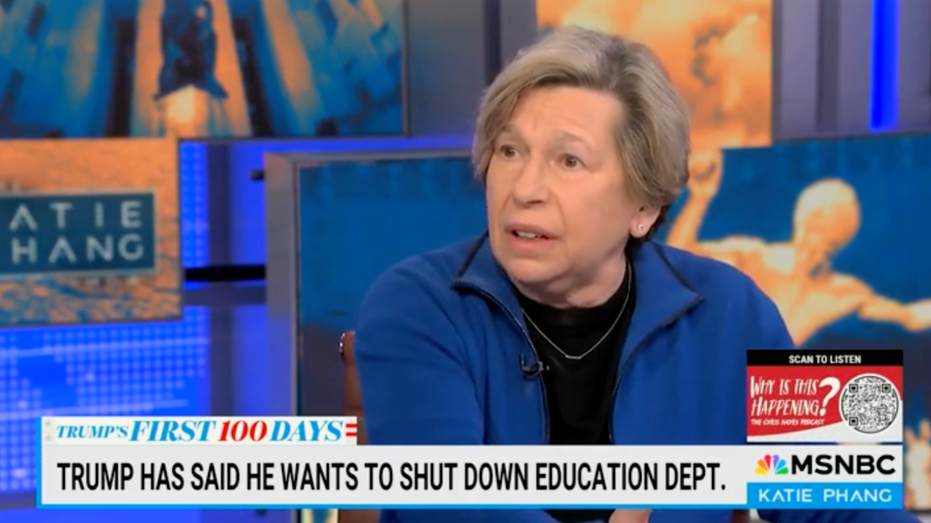
President of the American Federation of Teachers (AFT) Randi Weingarten is making headlines again, as her reaction to the recent proposal to eliminate the Department of Education reveals a stark shift from her earlier comments. After a summer of seemingly nonchalant remarks regarding union members’ sentiments, Weingarten is now expressing deep anger over this potential decision, indicating a significant change in tone.
Recently, Weingarten stated, “I am really angry about this.” Her outrage comes just months after she suggested that the members of her union “don’t really care” about federal education oversight. This contradiction has raised eyebrows among educators and political commentators alike.
Weingarten’s Initial Reactions
Back in mid-year discussions, Weingarten’s previous feedback on the federal Department of Education highlighted a sense of apathy. Many members expressed concerns, yet Weingarten appeared dismissive at that time. “Union members are so focused on local issues that they might not be affected by changes at the federal level,” she mentioned during a press conference.
By contrast, the current proposal to eliminate the Education Department has reignited her passion for education policy. Weingarten’s transformation from detachment to outrage sends a clear message about the vital role that federal policies play in shaping local education systems.
The Importance of the Department of Education
The Department of Education plays a crucial role in ensuring access to quality education across the United States. Its elimination could lead to unpredictable outcomes and exacerbate existing inequalities in educational opportunities for students nationwide.
Experts argue that local management of education severely depends on federal support and guidelines. For example, funding for special education programs and resources to help underserved communities often flows from federal initiatives. Without this support, many districts might struggle to provide adequate facilities and educational materials.
Union’s Reaction
In response to the proposal, the AFT released a statement emphasizing the need for federal oversight in education. “Education lessons from the past illustrate that when federal guidelines diminish, so does equity,” the statement read. This echoes Weingarten’s newfound sentiment addressing the possible effects the elimination could have on students and educators.
Furthermore, the AFT plans to mobilize its members for advocacy efforts aimed at preserving the Department of Education. The union seeks to inform local educators and parents about the implications of the proposal. “We are committed to ensuring every child has access to a high-quality education,” Weingarten affirmed during a recent rally.
Political Landscape and Education Policy
The proposal to eliminate the Department of Education aligns with broader political shifts toward decentralization of education governance. Supporters of this movement argue that local authorities should have the freedom to manage educational policies without federal intervention. However, critics warn that such an approach might lead to disparities in funding and educational quality.
With the divide between local and federal control widening, Weingarten’s passionate response emphasizes the urgent need for balanced policy discussions. Her earlier comments may have suggested that local issues were more immediate, but the current debate reminds educators that federal guidelines significantly influence local effectiveness.
Implications for Future Education Policy
The conflict surrounding the Department of Education reflects deeper concerns within educational circles. As states grapple with issues like funding formulas, teacher shortages, and standardized testing, the need for a cohesive federal vision becomes more apparent.
Weingarten’s newly reignited opposition to the elimination of the Department of Education underscores the complexities in educational governance. It illustrates how educators must remain vigilant and responsive as policy changes emerge.
As the national conversation develops, Weingarten and the AFT plan to leverage their influence in advocating for the federal education framework essential to ensuring equitable education across the nation.
Moving forward, it is critical for educators, policymakers, and communities to engage in robust discussions about the ways education is governed. Balancing local control with the necessary oversight and support from the federal level will be imperative to maintain the integrity of the nation’s education system.
Reference: Source Article

